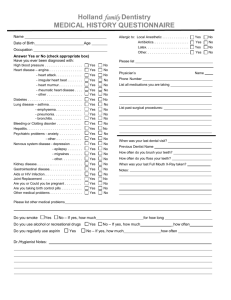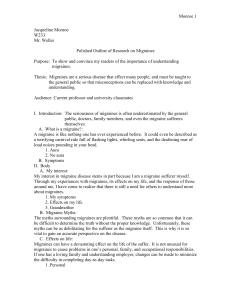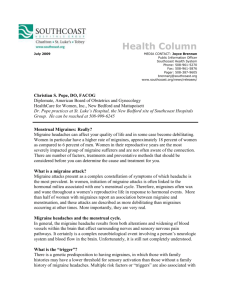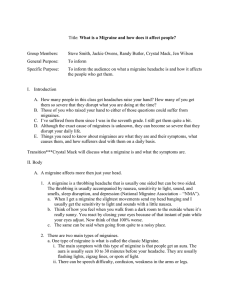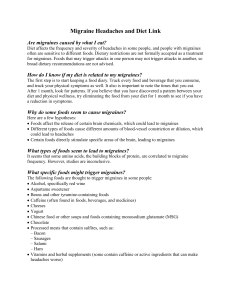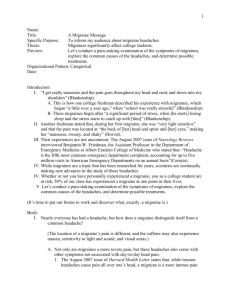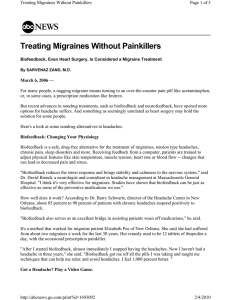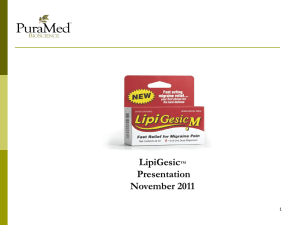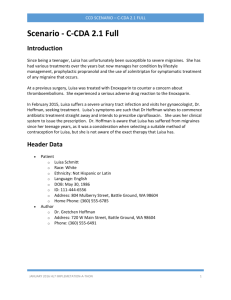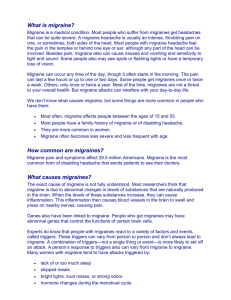Physician Interview
advertisement
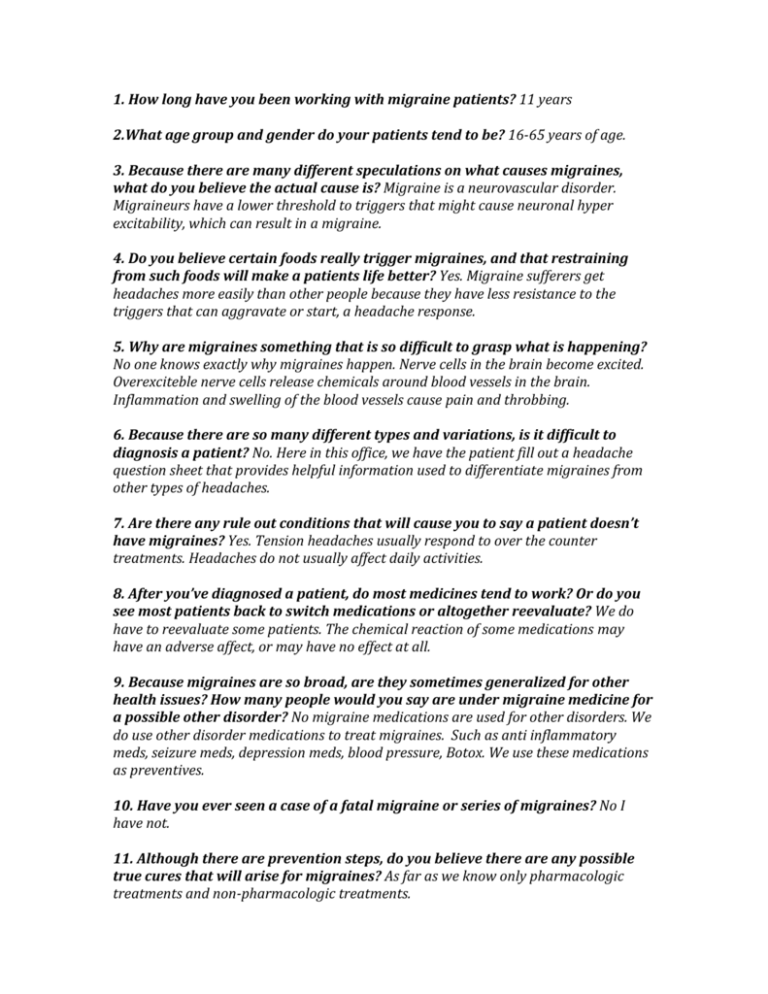
1. How long have you been working with migraine patients? 11 years 2.What age group and gender do your patients tend to be? 16-65 years of age. 3. Because there are many different speculations on what causes migraines, what do you believe the actual cause is? Migraine is a neurovascular disorder. Migraineurs have a lower threshold to triggers that might cause neuronal hyper excitability, which can result in a migraine. 4. Do you believe certain foods really trigger migraines, and that restraining from such foods will make a patients life better? Yes. Migraine sufferers get headaches more easily than other people because they have less resistance to the triggers that can aggravate or start, a headache response. 5. Why are migraines something that is so difficult to grasp what is happening? No one knows exactly why migraines happen. Nerve cells in the brain become excited. Overexciteble nerve cells release chemicals around blood vessels in the brain. Inflammation and swelling of the blood vessels cause pain and throbbing. 6. Because there are so many different types and variations, is it difficult to diagnosis a patient? No. Here in this office, we have the patient fill out a headache question sheet that provides helpful information used to differentiate migraines from other types of headaches. 7. Are there any rule out conditions that will cause you to say a patient doesn’t have migraines? Yes. Tension headaches usually respond to over the counter treatments. Headaches do not usually affect daily activities. 8. After you’ve diagnosed a patient, do most medicines tend to work? Or do you see most patients back to switch medications or altogether reevaluate? We do have to reevaluate some patients. The chemical reaction of some medications may have an adverse affect, or may have no effect at all. 9. Because migraines are so broad, are they sometimes generalized for other health issues? How many people would you say are under migraine medicine for a possible other disorder? No migraine medications are used for other disorders. We do use other disorder medications to treat migraines. Such as anti inflammatory meds, seizure meds, depression meds, blood pressure, Botox. We use these medications as preventives. 10. Have you ever seen a case of a fatal migraine or series of migraines? No I have not. 11. Although there are prevention steps, do you believe there are any possible true cures that will arise for migraines? As far as we know only pharmacologic treatments and non-pharmacologic treatments. 12. Do you know of any support or awareness groups for migraines in Atlanta? There is one group near Atlanta called MeetUp.
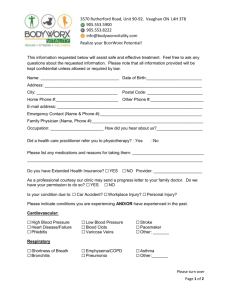
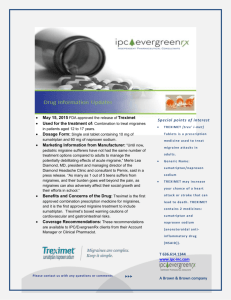

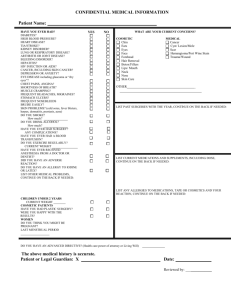
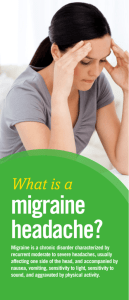
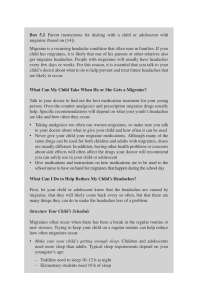
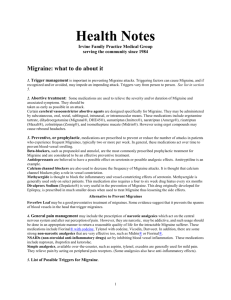
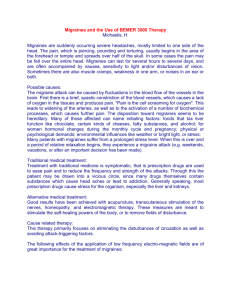
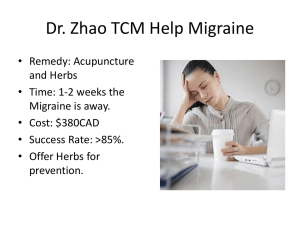
![[Plan Logo] [INSERT DATE] Dear Plan Member: Migraines can be](http://s3.studylib.net/store/data/007204786_1-1e3272ccd311201e3ba31cbff3397a69-300x300.png)
